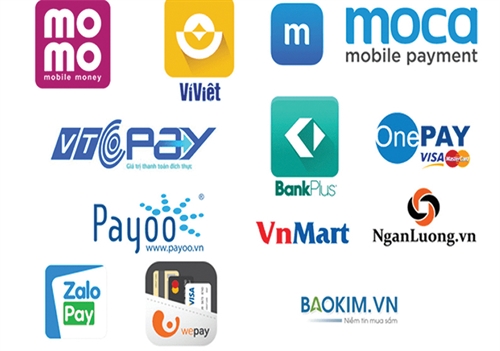The State Bank of Vietnam (SBV) is planning to apply on a pilot basis a regulatory sandbox allowing fintech companies to provide some banking services from 2021.
The seven sectors opened to fintech companies include payment, credit, peer-to-peer (P2P) lending, customer identification support, open application programming interface (open API), tech-based solutions, and other banking support services, according to a draft decree on the pilot mechanism for controlling the operation of fintech companies in the banking sector recently released by the SBV for public comment.
Statistics show that fintech is developing rapidly in Vietnam. The number of fintech startups in the country has increased from 40 in 2016 to more than 150 currently, of which 80 percent are engaged in the banking sector. There are now 34 fintech companies operating in payment, 40 in P2P lending while others provide banking support services without collection of fees from end-users. The fintech sector also managed to draw the attention of tech giants such as FPT, Viettel and VNPT on the foundation of fintech solution companies, investment funds and incubators to support fintech startups.
The central bank cited United Overseas Bank’s Fintech in ASEAN - From Startup to Scale up Report 2019 that Vietnam saw an investment inflow worth USD 400 million into fintech last year, accounting for 36 percent of the total investment poured in fintech in ASEAN and ranking second in ASEAN, only after Singapore.
However, Vietnam still lacks a legal framework to regulate the operation of fintech companies and consequently, is now facing risks resulting from these activities such as security and data breach, usury, money laundering and terrorism financing.
A victim of online lending was Mr. H., a resident in Ho Chi Minh City’s Binh Thanh district. From October 2019, he has been constantly annoyed by repeated calls from debt collectors urging him to pay a debt of VND 35 million, approximately USD 1,200, borrowed from FE Credit. To the surprise of Mr. H., who affirmed that he had not borrowed any loans from FE Credit, debt collectors showed him an online loan agreement, which, however did not contain his signature but was enclosed with his photo and a copy of his identity card. In fear of having his personal information stolen and abused for illegal purposes, Mr. H. contacted FE Credit and was guided by the company to request the beneficiary bank to check and certify that he was not the owner of the beneficiary account.
However, after completing all procedures and providing FE Credit with all certification documents as required, on July 7, Mr. H. was informed by an employee of FE Credit that he still owed the debt. Only when Mr. H.’s pregnant wife got desperately anxious about the debt and encountered a risk of miscarriage, FE Credit agreed to cancel the debt on the system of the Credit Information Center (CIC) and transfer the case file to investigation agencies.
The key to Mr. H.’s story was the identify card used to sign the online loan agreement. Interestingly, although the agreement was signed in October 2019, the identity card had been invalidated three months earlier in July 2019. Mr. H. also found out that the account to which the sum of VND 35 million was disbursed had been registered with such identity card. This account was opened by a Hanoi-based company as a salary account for its employee. However, the account owner’s specimen signature was not Mr. H’s.
Mr. H was still lucky as the story finally ended without any unfortunate consequences. According to Dr. Nguyen Tri Hieu, a finance-banking expert, when borrowing capital from institutions not yet licensed by the SBV to conduct credit activities, borrowers will probably face serious problems such as usurious lending rates, personal information leakage and vicious debt collection.
Local media recently reported that Ho Chi Minh City’s Police arrested two Chinese citizens and three Vietnamese who ran an illegal ring operating loan shark apps with more than 60,000 debtors and loans totaling VND 100 billion (USD 4.2 million).
The gang used several apps, including Vaytocdo, Moreloan, VD online, etc., to offer loans to clients. First-time loan takers could borrow a maximum of VND 1.5 million (USD 63), of which VND 600,000 (USD 24) was service charge. Debtors had to pay up VND 1.5 million after a week, or they would be charged an interest rate of 3 percent per day, equal to 1,095 percent per year.
It is worthy to mention that most borrowers did not know that these apps had stolen information from their phone contacts during the loan application process and when loan takers delay the payment, debt collectors would spam-call their family members and acquaintances to pressurize them into paying their debts.
Against that backdrop, the SBV’s proposal was warmly welcomed by economic and legal experts as it would help reduce risks in online lending activities.
“While personal loan apps and credit broker service websites are mushrooming and conduct professional operations like credit institutions, we have no legal document specifying their functions and operations, thus making it very difficult for competent authorities to handle arising problems, lawyer Nguyen Thanh Ha from SBLaw was quoted by the Phap luat Thanh pho Ho Chi Minh (Ho Chi Minh City Law) e-newspaper as saying.
The pilot regulatory sandbox, which will be applied in one year or two years, is tailored to redress the above-mentioned situation. According to the SBV, it will create an environment for experimenting new services and concurrently restrict risks possibly arising from unofficially licensed fintech services.
Commenting on the SBV’s plan, Dr. Hieu said the sandbox was quite complete but the pilot period should last for just one year rather than being prolonged to two years.
Hieu explained one year is enough for competent authorities to review and evaluate which regulations are appropriate and which need to be further improved and, on that basis, form an official legal framework governing fintech activities in the banking sector. “The longer the pilot period is, the more risks arise from loan scams or frauds,” he added.
To minimize risks in P2P lending activities, Dr. Hieu proposed the SBV to add provisions allowing companies engaged in these activities to access customer information on the CIC’s portal. “This will help better secure investors’ capital and, at the same time, facilitate people’s access to lawful credit sources,” Hieu said.
“Surely, there will be no P2P lending app that can find out completely riskless solutions. Hence, the SBV should better design regulations requiring fintech companies providing P2P lending services to manage and control risks at a reasonable level,” Hieu recommended.-









